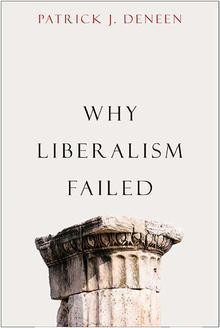Evangelical Politics - A New Hope
If this year has taught us anything, it’s that politics are messy.
All political systems bring together with differing opinions into coalitions designed to pursue an agenda. This means that careful thinkers often find themselves pushing for candidates that represent them in some areas, but not in all. It means sometimes accepting the lesser of two evils, as long as neither evil is that bad.
Christian engagement in politics is even more difficult than for the general population. Our integrity as Christianity is moored to eternal truths with contemporary applications. This means that in some areas compromise is impossible. It means that we will (or should) find ourselves pointing to good things on both sides of a political argument.
Scott Sauls’ book, Jesus Outside the Lines, discusses this conundrum of trying to be gospel-centric and truth-centric instead of power-centric. Contemporary American politics (and all politics, to be honest) have become especially divisive because power has become a greater concern than truth in the postmodern era.
Many times these political divisions split congregations and even individual the viewpoint of individual Christians. A Christian can be both for racial reconciliation and believe the free market is the best option for an economic system. The same Christian might also be confident in the importance of protecting the environment while being certain that abortion is a moral evil. These are all issues that can be supported with reasoned arguments and reconciled with a Christian worldview, but which have tended to fall on either side of the American political party divide.
The lowest of lows of our American political scene, with two intolerable candidates for President from the major parties, may be the source of renewed gospel-centric cooperation between Christians. Instead of insulting someone for a D or an R on their voter registration card, the fact that both parties have played their voters for fools has potential to bring Christians together across previously insurmountable political divides.
A team of socially conservative Christians, with voices from both major political parties, have united for a new attempt to engage American politics with a distinctly Christian voice. The website, Public Faith, represents a hopeful attempt at renewal of evangelical moral witness in politics.
Their vision statement affirms a positive hope of a better political future with an authentic voice for the faithful:
“We invite all Christians and those of good will to join us as we advocate for a perspective that challenges political parties with a better vision. We call on Christians to work within political parties to advocate these essential ideals and to change parties or create new ones when reform is no longer feasible.”
A movement for the common good among Christians is an excellent thing. Let the faithful be for the good of all, not the power of some. It’s early in the history of this new evangelical organization, but I’m hopeful it can begin to give a voice to many of us who have been publicly embarrassed by the compromise of so-called progressive evangelicals who butcher Scripture as they cave to culture on every issue of contention and the embarrassing cavorting of self-described evangelicals like Jerry Falwell who have become Donald Trump supporters.
My greatest concern for this organization is that its founding documents area bit lean on theological content. They affirm a “commitment to orthodox Christian faith” but that is left somewhat loosely defined. I recognize the difficulty in laying out a sufficient theological vision to accompany the high quality political vision, but since theology precedes politics, the statement is very important. Time will tell whether there is sufficient theological cohesion to support this movement’s political vision.
In the meanwhile, I am encouraged by the start and hopeful for the movement’s future.










